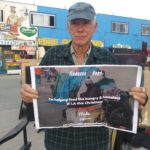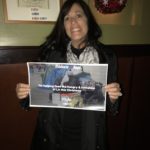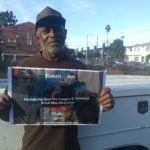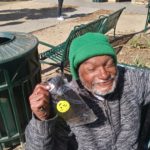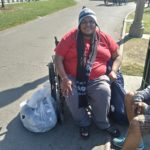L.A. is in the grips of chronic homelessness –a ceaseless epidemic that shows no signs of abating.
In the past six years alone, the numbers of those without a home, sleeping on the streets, and in shelters in the city of Los Angeles has surged 75%.
Currently, it’s estimated that nearly 59,000 people lack a “fixed, regular or adequate place to sleep”. Their reality, every night, is the prospect of finding some alleyway, bus bench, or cold, hard street to sleep on, or a shelter — if there are beds available.
The options are dismal and bleak.
It’s evident to anyone who lives in L.A., that even in the past six months, more and more people appear to be out on the streets. The issue of homelessness is not going away — it’s increasingly getting worse. The new figures of those without a home will be released this spring, and they are expected to show another increase in homelessness as the lack of beds far outweighs the homeless.
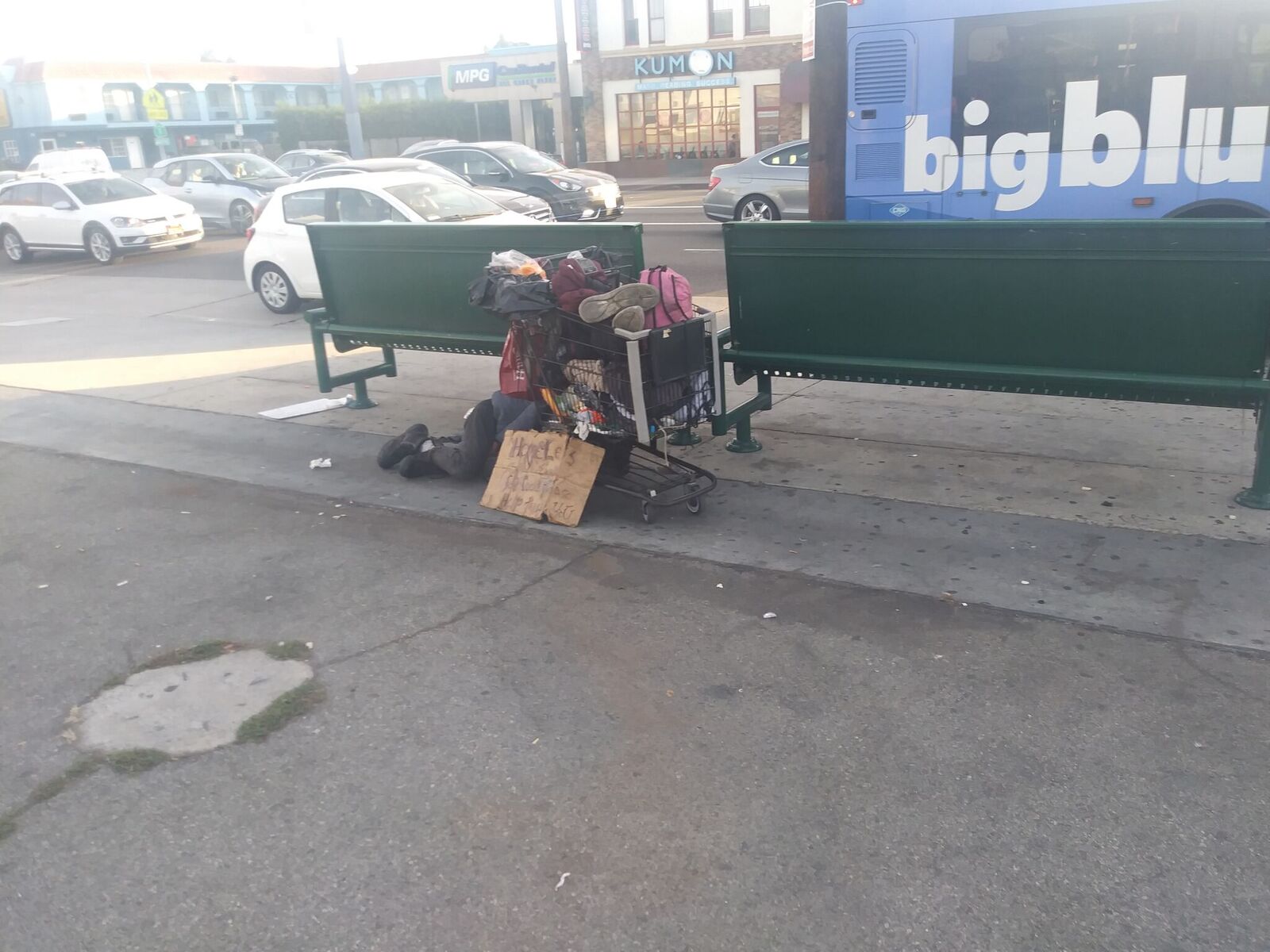
According to a report, the homeless population of Los Angeles County comprises of the following:
8% who are veterans
40% African Americans
9% are under age 18.
31% are female.
15% are in family units (often headed by a single mother)
16% are physically disabled.
30% are chronically homeless.
18% of 18+ homeless population have substance abuse disorders.
30% of 18+ homeless population suffers from a serious mental illness.
34% of 18+ homeless population were victims of domestic/intimate partner violence.
An editorial in the Los Angeles Times published on February 25, summed up the magnitude of the problem and how it is imperative that a societal change must occur —how we must treat the homeless as people, not statistics.
A quote from the piece read;
It is neither desirable nor morally acceptable nor practical for this city or this county to blithely tolerate the signs of destitution more commonly associated with 1980s Calcutta or the slums of Rio de Janiero or medieval Europe. We cannot go on shutting our windows to beggars at freeway offramps or stepping casually over men and women curled up in sleeping bags or turning away when people who have no access to public bathrooms use the city streets as toilets.
All the great social issues of American society play out in homelessness — inequality, racial injustice, poverty, violence, sexism.
Each and every one of us can help spark change — regardless of how small that change may be, it’s a step in the right direction.
So far, all of these people, and many more who have yet to photographed, have contributed to feeding people in West L.A.; providing women with care packages that contain the necessities like underwear, tampons, feminine wipes; keeping men and women warm during a brief colder period with blankets, beanies scarfs, gloves; and also, providing clothes for the homeless.
Here’s what has been achieved:
All of this has occurred in just two months on a grassroots level.
It’s time we all stepped up and did more to help those who weren’t given the opportunities we were. Who don’t have the luxury of a bed or warm meal… or even a shower.
Whether it’s money, food, blankets, clothes, toiletries….whatever anyone can do to help, is always appreciated by those on the streets.
If you would like to make a donation, please click HERE.
If you would like to contribute in another way, please reach out to me at [email protected]









